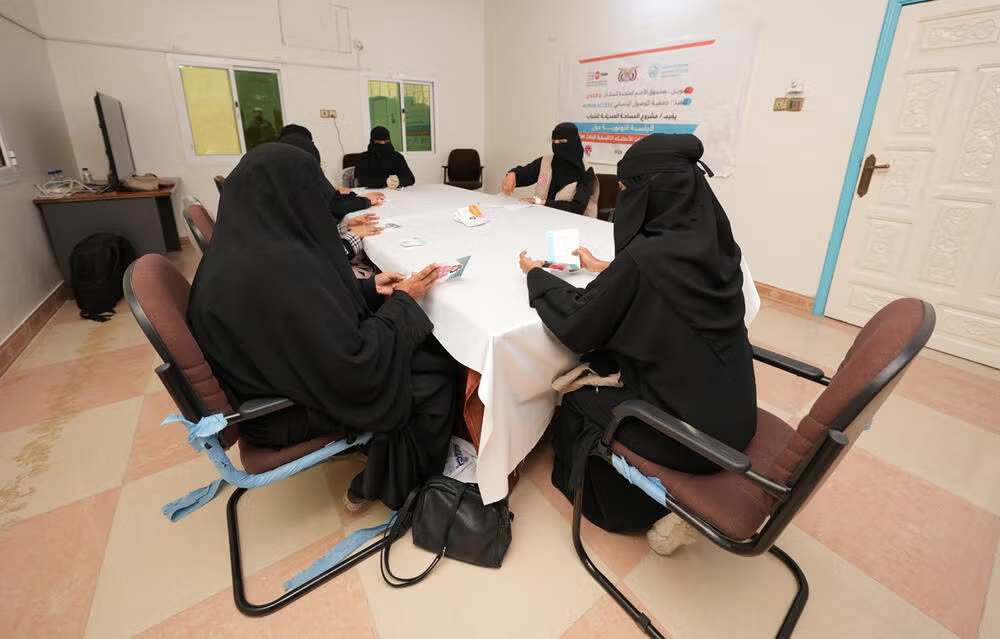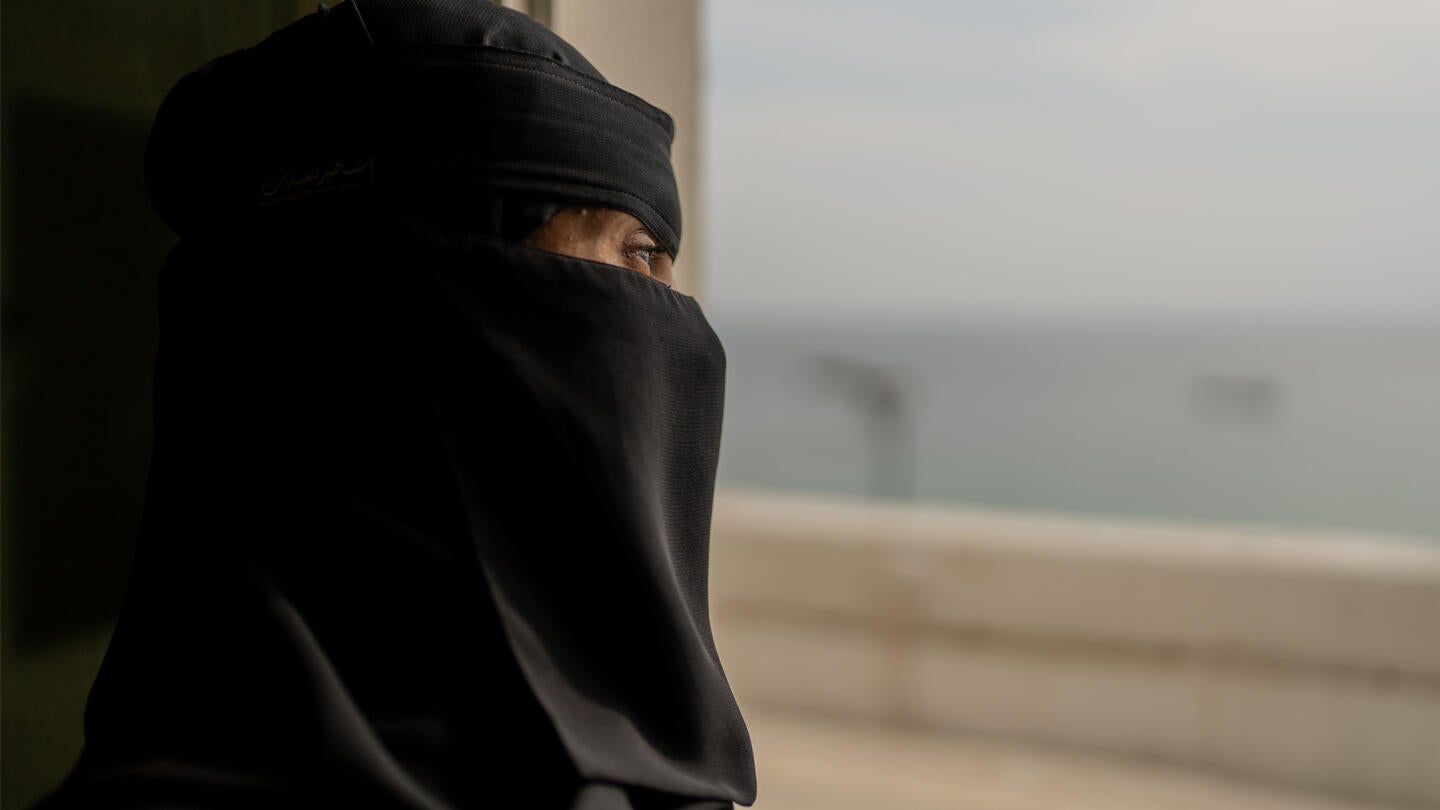"I saw my delicate newborn baby, just days old, slowly dying before my eyes due to a brutal circumcision," Um Hanin recounts, her voice heavy with grief. "I do not want any mother in this world to experience the same pain.
Om Hanin's tragic story is a stark reminder of the devastating consequences of female genital mutilation (FGM), a deeply rooted practice in Yemen. Despite its harmful physical and psychological effects, FGM persists due to social norms and the absence of legal prohibitions.
But change is happening.
In a dimly lit room in Hadhramout, Om Amina, nine months pregnant with her first daughter, sat alone, lost in thought. The whispers of her childhood echoed in her mind—stories of girls crying in pain, their innocence stolen by a blade. She knew that soon, her daughter would be born into the same world, but this time, the cycle had to break.
Om Amina had grown up witnessing female genital mutilation (FGM) being practiced hearing stories of girls enduring its dangers and pain. However, her perspective changed when she received an awareness session at home from the Child Ambassadors Network. These networks established under the UNFPA-UNICEF Joint Programme on FGM advocates for the prevention of FGM through collaborations with grassroots networks. She learned about the myths, dangers, and consequences of FGM on a girl’s psychological and physical well-being. It was a turning point for her, making her question the deeply entrenched traditions that had persisted for generations.
"This is my daughter, and I am responsible for her health and happiness," Om Amina declared, defying family and community pressure. "No one has the right to harm her."
Her courage inspired other pregnant women in her neighbourhood, who began to question FGM and seek guidance on protecting their daughters. Awareness campaigns continued to change minds and offer support to mothers willing to break the cycle.
The cost of harmful practices

Khadija, a teenage mother living in a remote area of Hadhramout, experienced the devastating consequences of FGM firsthand. At 16, she gave birth to her first daughter, Fatima, who was subjected to FGM at just one week old.
“My aunt and husband took my daughter to the midwife,” Khadija recalls. Hours later, tragedy struck. “My husband was in a state of panic, screaming: ‘My daughter is bleeding badly!’
Despite their desperate efforts, Fatima did not survive. “I lost my little girl,” Khadija says, grief-stricken. “I was robbed of the most precious thing.”
Determined to prevent other mother from experiencing such loss, Khadija joined FGM prevention efforts. “I decided to be a voice for the truth,” She declares. She now shares her story, hoping to protect future generations.
A matriarch’s transformation
Om Aya, a mother of two, spent months trying to persuade her aunt to abandon FGM. Her aunt, a revered figure in their community, had long been one of the strongest advocates for the practice.
No one could believe that she would change her stance and transform into one of the most important supporters of the 'Shamakhat Network'—a network of female volunteers in Al Mukalla, focused on raising awareness among residents of the areas in Yemen where FGM is most prevalent.”
"My aunt was the one who pushed me to circumcise one of my daughters, who miraculously survived," Om Aya shares. "She was the last person anyone would believe could be convinced to abandon FGM."
But her aunt's stance changed dramatically. "I cannot believe the great sin I have been committing," she says, expressing deep remorse. "I only ask God to forgive me."
She has since discarded her tools and refuses to participate in any further circumcisions. "I can no longer bear to see those tools," she says. "I will not allow any woman to use them."
Her transformation is a testament to the power of education and advocacy in changing deeply ingrained beliefs and practices.
Hope for the future
FGM remains a harsh reality in Yemen, with 19 per cent of women aged having undergone the procedure.
Yet, change is happening. Networks like the Shamakhat Network and the Children’s Honour Ambassadors as part of the UNFPA- UNICEF Joint Programme, are working tirelessly to educate communities. Former practitioners are abandoning their tools, and women like Wedad, who is herself a survivor, are fighting to protect girls. “I have not missed any opportunity—whether at women's gatherings, meetings, markets or even on the streets— to advocate for the cause,” Wedad shares. “I stop women on the streets, distribute leaflets, and encourage them to join our efforts.”
A Call to Action
The battle against FGM in Yemen is far from over, but every voice, every story, every act of defiance brings us closer to ending this harmful practice. Education, advocacy, and legal reforms are crucial. We must support the networks working on the ground, amplify the voices of survivors, and push for policy changes that protect the most vulnerable.
No girl should suffer in silence. No mother should have to endure the pain of losing a child to this outdated and harmful tradition. It is time to break the cycle. It is time to listen to the ‘silent cries.’ It is time to act to protect the rights and well-being of Yemen’s daughters. Their future depends on it.
If you believe in a world free where girls are from FGM, support the tireless efforts of local and international organisations working to protect Yemen’s daughters. Together, we can create a future where every girl can reach her full potential and live a life free from violence and harm.


